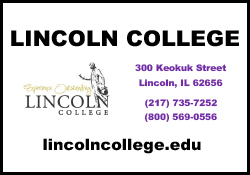|
For some trauma doctors, clash with NRA
proves therapeutic
 Send a link to a friend
Send a link to a friend
 [May 15, 2019]
By Daniel Trotta [May 15, 2019]
By Daniel Trotta
NEW YORK (Reuters) - A recent clash with
the National Rifle Association (NRA) has shown some doctors who treat
gunshot victims a way to heal their own trauma: through activism against
gun violence.
With rates of post-traumatic stress disorder (PTSD) on par with that of
Iraq and Afghanistan war veterans, trauma surgeons have found that
speaking out helps them cope with the hopelessness and anger that come
from seeing gunshot victims repeatedly wheeled into the trauma bay.
"Working in advocacy is a way to deal with burnout," said Dr. Jessica
Beard, a trauma surgeon at Temple University Hospital in Philadelphia.
The doctors' clash with the NRA began in November after the American
College of Physicians published a paper about reducing firearm injuries
and deaths in the United States. The NRA answered with a tweet
admonishing "self-important anti-gun doctors to stay in their lane."
That set off a viral response. Trauma surgeons around the country posted
pictures of their blood-soaked scrubs and operating rooms after treating
gunshot victims, punctuated with a defiant #ThisIsOurLane hashtag.

The movement has spread. In Pennsylvania, a group of doctors formed a
coalition to urge policy changes to state legislators. North of the
border, the Canadian Doctors for Protection from Guns staged
demonstrations in April, shortly after forming.
Experts have likened the doctors' uproar to that of high school students
from Parkland, Florida, who led nationwide protests after surviving a
mass shooting that killed 17 people on campus in February 2018.
"What you saw in the postings from #ThisIsOurLane directly showed the
impact of gun violence on trauma surgeons. That was our way to
demonstrate the trauma that we experience in dealing with the victims of
gun violence," Beard said.
For many it was a call to action, to work scientifically or politically
to fight gun violence.
Beard chose research, treating gun violence as a public health issue to
reduce death and suffering. Her study published in April found
Philadelphia's three trauma hospitals receive the equivalent of a mass
shooting every 2-1/2 months, when defined as four or more gunshot
victims arriving in clusters.
Other doctors are more overtly political.
The American College of Physicians supported measures including
"appropriate regulation of the purchase of legal firearms," such as
requiring background checks for gun buyers and greater checks on
domestic abusers.

Dr. Zoe Maher, another Temple trauma surgeon, helped form the Coalition
of Trauma Centers for Firearm Injury Prevention, which urges changes in
public policy to Pennsylvania state legislators.
The coalition's first campaign was to support a "red flag" bill that
would enable authorities to take away guns from people legally deemed
dangerous.
Maher said she was motivated because so many of the nearly 40,000 U.S.
gun deaths each year were preventable.
[to top of second column]
|

Trauma surgeon Dr. Joseph Sakran poses for a portrait at Johns
Hopkins hospital in Baltimore, Maryland, U.S., May 13, 2019.
REUTERS/Rosem Morten

"The empowerment that I am gleaning as an individual in trying to
actually combat this preventable public health crisis is something
that definitely helps to protect me from burnout," Maher said.
The NRA has opposed research that it says is intended to restrict
the right to keep and bear arms as guaranteed by the Second
Amendment of the U.S. Constitution. It did not respond to requests
for comment for this article.
MORAL INJURY
Medicine has long been affected by burnout, or what some doctors
prefer to call "moral injury." This is defined by feelings of being
disconnected from oneself, emotional exhaustion and reduced personal
accomplishment.
Other afflictions include vicarious trauma and compassion fatigue,
which can affect any medical professional exposed to trauma,
including nurses, other operating room personnel and first
responders.
Some 40 percent of trauma surgeons showed symptoms of post-traumatic
stress disorder (PTSD) and 15 percent met the criteria for a PTSD
diagnosis, according to a 2014 survey by the Journal of Trauma and
Acute Care Surgery.
A similar 15.7 percent of Iraq and Afghanistan war veterans screen
positive for PTSD, according to the U.S. Department of Veterans
Affairs.
Medical journals report that some 400 physicians of all types die by
suicide each year, the equivalent of an entire medical school class.

While soldiers, journalists and other medical professionals have
dealt more openly in recent years with the mental health effects of
witnessing horrible events, trauma surgeons have lagged behind.
"They're going to be one of the last people to say, 'I can't handle
this, I'm in emotional distress,'" said Nancy Beckerman, professor
at Yeshiva University's Wurzweiler School of Social Work in New
York.
Dr. Stephanie Bonne, an activist and trauma surgeon at Rutgers
University Hospital in Newark, New Jersey, said trauma in the
operating room adds to other daily stresses such as seeing the
latest shootings on the news while the pager sounds, indicating
another gunshot victim is arriving.
"There is a feeling of helplessness like you're trying and trying,
you're trying to push against the system," Bonne said. "And yet the
patients just keep coming and coming."
(Reporting by Daniel Trotta; Editing by Dina Kyriakidou Contini and
Jonathan Oatis)
[© 2019 Thomson Reuters. All rights
reserved.]
Copyright 2019 Reuters. All rights reserved. This material may not be published,
broadcast, rewritten or redistributed.
Thompson Reuters is solely responsible for this content. |